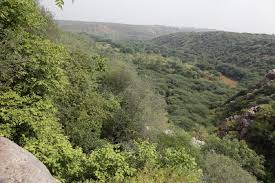A group of retired Indian Forest Service (IFS) officers from across the country has raised strong objections to the proposed 10,000-acre Aravali Safari Park project, citing severe environmental risks. The project, planned in parts of Gurugram and Nuh, was originally envisioned as a tourism initiative by the Haryana government under a promise made by the Bharatiya Janata Party in its manifesto, titled “Non-Stop Haryana Ka Sankalp Patra,” ahead of the Assembly elections last year.
The retired IFS officers, in a letter addressed to Prime Minister Narendra Modi, emphasized that any development in an eco-sensitive zone like the Aravalis should prioritize “conservation and restoration” rather than “destruction.” The letter, spearheaded by IFS officer Uma Shanker Singh and supported by over 30 retired officials, was also sent to Union Environment Minister Bhupender Yadav and Haryana’s Chief Secretary.
The officers raised concerns about the adverse impacts of the Safari Park on the region’s fragile ecosystem. The proposed park is expected to increase vehicular traffic and construction activities in the area, which could disturb vital aquifers beneath the Aravalis. These aquifers are crucial water reserves for the drought-prone districts of Gurugram and Nuh.
The letter specifically pointed out the “underwater zone” planned for the park, noting that it could significantly alter groundwater levels in an already water-scarce region. Gurugram and Nuh are classified as “overexploited” by the Central Ground Water Board, highlighting the urgency of protecting the water resources in these areas.
Furthermore, the officers argued that the Safari Park’s location falls under the category of forest land, which is protected under various Supreme Court and National Green Tribunal orders. The Forest Conservation Act, 1980, prohibits tree cutting, land clearing, and construction activities in such areas, making the project’s feasibility legally questionable.
In their representation, the retired IFS officers underscored that Haryana already has the lowest forest cover in India, with the Aravalis providing the majority of the state’s forested areas. They warned that human interventions like mining and settlement in the region disrupt ecological balance and threaten the progress of Sustainable Development Goals.
The opposition to the project has gained traction among environmentalists who view it as an “illegal” venture, citing concerns that it would irreversibly damage the region’s ecology. The debate continues to intensify, with both supporters and critics of the Safari Park project awaiting the government’s response.
As the issue garners attention, experts and environmentalists urge the government to reconsider its plans and place conservation efforts at the forefront of any development in the Aravalis.






























